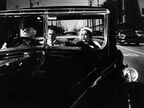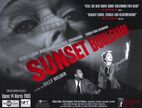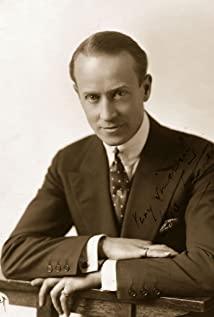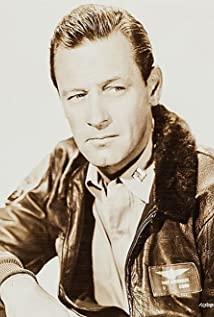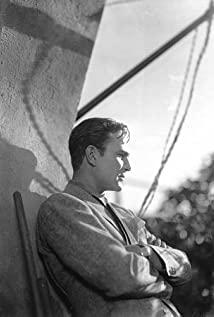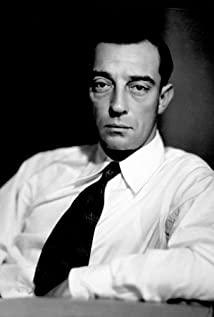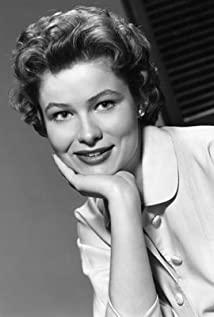"Sunset Boulevard" has been ranked No. 1 in the most popular movies by Hollywood actors for many consecutive years. In fact, this is not puzzling—after all, it is such a pure Hollywood movie, using Hollywood screenwriters and directors to tell Hollywood. The actor plays the role of actors, screenwriters, directors, assistants and other people around them in real life, and the story tells the inevitable ending of each actor so predictively. No wonder the narcissistic actors are also overwhelmed by it. .
But as a movie that mirrors Hollywood, "Sunset Boulevard" also inevitably reflects its patriarchal side. Of course, the contemporary patriarchy ruled the world almost completely. It's just that as a new and popular culture, "Sunset Boulevard" can reveal the attitude of mainstream values towards patriarchy in some ways. Therefore, this article aims to use psychoanalytic feminist theories to peruse the film text from the film's narrative, plot, and the relationship between film and reality, and explain how Hollywood maintains the patriarchal system in "Sunset Boulevard".
1. Film Narrative and Others
Different from the third-person narrative perspective of ordinary movies, "Sunset Boulevard" chooses the first-person perspective of the actor Joey to enter the story, and the psychological confession of the actor is penetrated throughout the film. These prestigious actions can be said to have caused the audience to automatically project themselves onto the male protagonist in the film through what Lacan calls "mirror" projection. And the narrative structure of the flashback allows us to foresee the end of the death of the protagonist "I" from the beginning. The corpse floating alone in the swimming pool sows the seeds of sympathy for the audience before the story can begin.
As a result, under the bombardment of the finely manipulated narrative, the audience almost forgot the basic fact that the narration of the film is not objective, but a secondary narration full of subjective opinions and choices, and this narrator is exactly A male. As a storyteller, he has some rights that other characters do not have. He can defend his actions, evaluate other characters, and even review his history to gain sympathy. The female characters in the film do not have this advantage, and can only remain silent and stared by men.
Laura and Moore once proposed in "The Pleasure of Watching Movies and Narrative Movies" that mainstream commercial films put women in a position to be stared at through narrative sequences, and "Sunset Boulevard" is a good proof. Whether it's pure Betty or crazy Norman, they are in a stared position throughout the movie, showing through the eyes of male characters. They are others created by male characters to meet their own needs, rather than independent individuals.
2. The history of male growth hidden in the plot
Continuing the otherness mentioned above, the setting of female characters in Sunset Boulevard actually has a strong purpose. Under the black suspense of the film, "Sunset Boulevard" actually hides a story about the growth of men. The two female images are created to help a boy grow into a man under the patriarchy, even if the growth is interrupted by death because of too strong resistance.
On the basis of inheriting Freud's "Oedipus complex", Lacan proposed that the growth history of men is actually a process of internalization of patriarchy. But in her growth experience, the girl as a typical castrated image will cause the boy’s castration anxiety; but at the same time, in order to overcome the Oedipus complex and grow into a real man, the boy has to learn to transfer his desires to other women. Body. Therefore, as the dual object of male desire and anxiety, the existence of women has become a dilemma. In order to resolve this dilemma, mainstream patriarchal ideology often uses methods of materializing women or fixing female images. For example, in "Sunset Boulevard", it adopts the typical solidified female image of angel mother/devil mother.
Norman, who exists as a demon mother, has a beautiful and attractive face, but it is still difficult to conceal her feminine heart. In the film, she always likes to use the angle of upward shooting to strengthen her strong personality and high position. The action of always standing at a high place and looking down also reflects her strong desire to control, and the lighting of the yin and yang face implies that she has long been In the crazy heart, the whole meaning of this role is to arouse the anxiety of men and the audience. She is a mother with a strong desire for control. She always keeps her son's every move under her supervision to prevent her son from growing up, in order to maintain her strong position. But Betty reflects the projection of male desire. She is young and beautiful, simple and weak. Although ambitious, her work ability is weaker than that of the male protagonist. In the film, she always uses soft light to give her delicate face and innocent big eyes close-ups. . She symbolizes a loving mother who always encourages and accompanies the male protagonist Joey to grow up, and even her ambitious character to write her own story, as a lowercase other object, constantly reminds Joey In his life, he spent a good time in Hollywood when he was young, in order to relive the sense of control of the world he felt in the "imagination world".
Max, the servant in the castle, played the role of a father in the story of the boy's growth. As the true creator and achiever of Norman, Max is undoubtedly the director of the whole scene and the authoritative center of the castle. He decided what Joey should and shouldn't do, cut his connection with the outside world at will, and forced him back to the castle at an appropriate time. And Joey's real growth also began by rebelling against this father-he no longer obeyed his ban, told the whole truth to Norman, and packed his bags and prepared to leave. It's a pity that the mother who wants to control the expansion prevented this growth by murder.
Although the protagonist Joey in the film seems to have failed in the metamorphosis, the film comforts the real audience in another way, that is, Norman's madness. Use madness to punish bad mothers, and use future, love, and marriage to praise good mothers. In this way, the anxious audience can finally take a long breath and clap their hands in front of the crazy woman's hideous face.
Third, the relationship with real Hollywood
As a movie written by Hollywood, "Sunset Boulevard" has a strong realistic orientation, and even the director deliberately used the method of letting the silent female star to play the angry female star to strengthen this reference. sex. The castle servant Max mentioned above, in addition to playing the role of the most powerful father in the "Sunset Boulevard" movie, his other identity, the director, points to the movie. The film director, as a high-ranking person in Hollywood, is the embodiment of the true Hollywood patriarchy. Norman, the seemingly wealthy and aggressive actress, is actually just a toy he picked up and reluctant to let go. To some extent, this also corresponds to the phenomenon of Hollywood's crazy starmaking in the golden age. In fact, it is the patriarchy that materializes women and promotes them as fetishes.
At the same time, there are also several unintentional displays of Hollywood patriarchy in the film. For example, when Norman went to Paramount to find director Bill, all the people with higher positions in the studio were men; Bill said to his assistants, Bill thought " She is a figure of the last century", Bill replied, "She was a sweetheart when she was young", but Bill, who was the father of Norman at age, was still active as the most famous director; and Betty was not able to be because of his nose. The actor's story. When comparing the details of these chats with those in Hollywood that have lasted for decades or even today, the gender ratio of male and female employees, the salary ratio of actresses and actors, and the length of career life of actors and actresses, we can find that in the so-called "world of Hollywood" The most culturally enlightened place", how deep is the patriarchy.
The maintenance of patriarchy in this process can even be said to have reached a climax in the last scene. When Norma, who was already sick to a madness, walked down the stairs step by step, according to Joey's words, "Everyone cooperated with her in acting. ", as if everyone was full of sympathy. But in my opinion, Norman, who is surrounded by people and walking down the stairs so solemnly under the camera lens, is more like a victim of patriarchy. Become a narcissistic monster who only pays attention to appearance and only knows to pursue the love of men. As accomplices, we are either ignorantly moved by the "sacrifice beauty" on the stairs, or ridiculed by her madness outside the screen.
View more about Sunset Blvd. reviews



